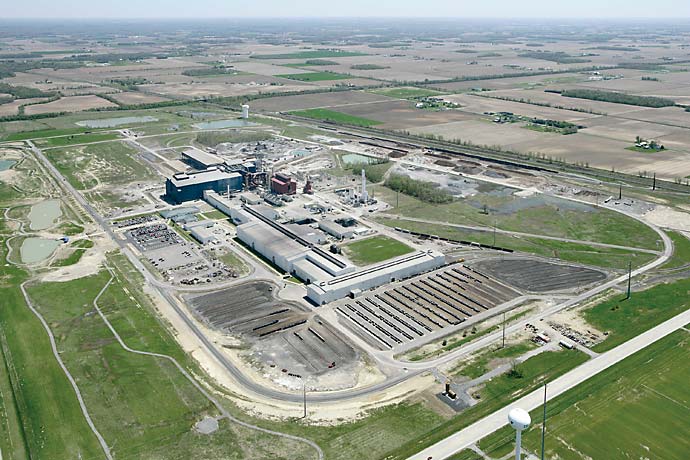“We thought when we located here in 1996 that we had an opportunity to develop a world-class work force,” says Rich Menzel, vice president of human resources for North Star BlueScope Steel in Fulton County, Ohio. “Sixteen years later, we know that we absolutely made the right decision.”
North Star is not alone. In Fulton County, a Northwest Ohio community of 43,280 people about 45 minutes west of Toledo, manufacturing companies are experiencing robust growth thanks to a home-grown but globally competitive work force.
No one knows this better than Menzel, who oversees the workers of North Star, a 50-50 joint venture between BlueScope Steel and Cargill Inc. The manufacturing plant in Delta is strategically located to deliver hot-rolled bands to coil processors, cold roll strip producers, original equipment manufacturers, steel pipe and tube makers, and steel service centers.
“The education level and rural work ethic here are very helpful,” Menzel says. “When you look at our attendance rates, statistically we have the best attendance of any company anywhere, according to the Bureau of National Affairs. We have been at 99.5 percent attendance month in and month out for over 10 years.”
The national absenteeism rate is around 2.3 percent, he says. “For every five people who take a day off work elsewhere, we might have one. That shows the dedication of our people. They are very engaged and focused on their job. They know that if they miss work, it will impact someone else.”
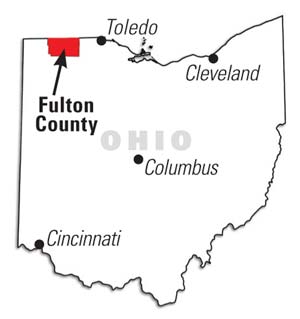
The half-billion-dollar plant makes 2.15 million tons of steel per year and employs 360 workers. “Many other companies would need 1,000 to 1,500 employees to make this much steel,” Menzel notes. “Since opening 16 years ago, we have added 500,000 tons of steel capacity a year without adding to our facility.”
The quality of the work force shows up in safety performance as well, he adds. “Lost time due to injuries is one indicator of plant safety. For 11 of our 16 years, we have gone lost-time injury free,” he says. “Our work force understands safe work behavior, and we get a lot of support from Cargill and BlueScope. We have a robust safety system.”
Customer satisfaction, however, is the ultimate measure of company success, notes Menzel. “We received the coveted Jacobsen Award nine straight years — an award based on an independent survey of 34 steel mills in North America,” he says. “We have been rated the highest overall in customer satisfaction by those companies. We are ranked first or second in deliveries. It all goes back to our work force and our ability to be very customer-focused and adaptable to change.”
Access to Major Midwest Cities
Menzel says that North Star is “looking at possible growth opportunities right now. There are different ways to grow the business. If some of our current growth plans go into effect, we would add to our work force.” The plant, which has 14 acres (5.7 hectares) under roof on a 530-acre (215-hectare) site, was built with plenty of space for production expansion, he adds.
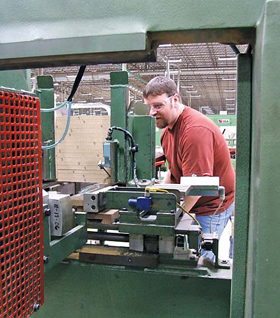
The plant location works for logistical reasons too, the executive says. “Our major raw material is scrap metal; this location gives us superior access to that supply. This material tends to be found within a 240-mile radius of our location, which includes Detroit, Cleveland and Chicago. The cost to deliver this scrap to us is very good.”
Competitive electric rates and immediate access to the Ohio Turnpike are key factors, Menzel says. “We get about 400 trucks a day, and we are only one mile from the Turnpike. Trucks coming to our site don’t have to go through the Village of Delta,” he notes. “We have a great overall business climate and a terrific environment for growth. There is a lot of support for business growth in the community.”
Kevin Sauder, president and CEO of Sauder Woodworking in Fulton County, agrees. “There is a real can-do attitude in the people we hire,” he says. “They grow up on farms learning how to fix things. They know how to work. There is not an entitlement mentality. There is a hard-working spirit here. We are a non-union work force but we pay competitive wages, and we have very little turnover.”
“Fulton County’s focus is on the worker because the workers focus on getting the job done,” says Lisa Arend, director, Fulton County Economic Development.
Sauder’s 4-million-sq.-ft. (371,600-sq.-m.) furniture-making plant in Archbold employs 2,000 workers in Fulton County and another 400 in other counties. The company, founded by Sauder’s grandfather in 1934, does about $450 million a year in revenue and is “back in a hiring mode again,” says Sauder.
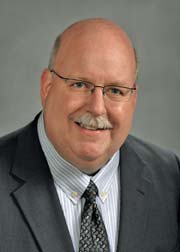
“We will hire about 150 workers in the first six months of 2012 as full-time personnel and another 100 or so temporary workers,” he says. “We still have enough space to grow, so we will not have to add to our plant.”
Ready-to-assemble furniture is Sauder’s primary product. “Our products are sold in Office Depot, Wal-Mart and IKEA,” he says. “We have captured market share with some innovative products and we are keeping our costs in line. We are seeing a shift back from imported products to domestically made products due to increased costs of working in China.”
Remaining in Fulton County has made the firm more competitive, says Sauder. “Some of our competitors had problems when they located elsewhere. They had trouble finding enough skilled machine operators to run the sophisticated equipment needed in this industry. We have never had that problem here.”
A Less-Taxing Environment
Sauder cites Ohio’s tax law reform of the mid-2000s as pivotal to the company’s success. “That has been huge for us,” he says. “We have seen a substantial tax decrease in going from the inventory tax to the commercial activity tax. We are not taxed on our inventory or machinery now. It makes us very competitive with the neighboring states.”
The county helps substantially with worker training, he notes. “The county economic development office is strong at pointing out work-force training grants that can help us. We have been able to take advantage of that, and we have been able to attract a very good labor force. For manufacturing, this is a great location.”
For logistics, the location enables Sauder to reach worldwide markets. “We ship to all parts of the USA, Mexico, Canada and some locations overseas,” he adds. “We are very close to the Ohio Turnpike and Interstate 75. We are close to a high percentage of the country. It is a central location for outbound logistics.”
Sauder notes that while Fulton “does not have the bright lights of the big city, we are close to Toledo and a reasonable drive from other major markets. We are only two and a half hours from Cleveland, two hours from Detroit, three hours from Columbus and three and a half hours from Cincinnati.”
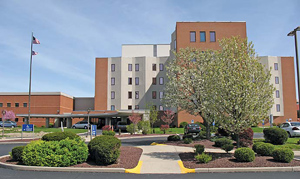
Dean Beck, chief administrator of the Fulton County Health Center, says that world-class health care can also be found in Fulton. “We have specialists that come in from Toledo and do a lot of diagnostic testing here,” he says. “We do a lot of advanced medical procedures here, and we have expanded our services.”
The 325,000-sq.-ft. (30,193-sq.-m.) hospital employs 850 workers. “We did a major expansion in 2007 when we added 57,000 sq. ft. (5,295 sq. m.). We also decided to buy 125 acres (51 hectares),” Beck says. “Our workers come from all across the region. We have Northwest State Community College that is 10 or 12 miles from here. The University of Toledo and Bowling Green State University are close by. We hire people from Ohio State and from colleges and universities in Indiana. Plus, Owens Technical School out of Toledo is a big supplier of workers for us.”
The hospital even helps meet some of the health-care needs of folks across the state line in Michigan, adds Beck. “We have a lot to offer people in the community,” he says.
This investment profile was prepared under the auspices of the Fulton County Economic Development Office. For more information, contact Lisa Arend at 419-337-9215 or by email at larend@fultoncountyoh.com. On the Web, go to www.fultoncountyoh.com.
